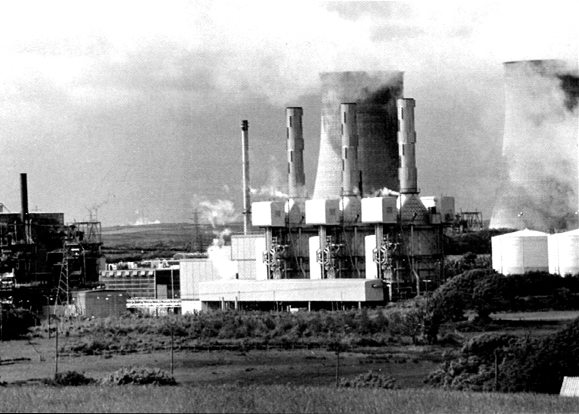Ireland has lost round one in its fight to close the MOX plant at Sellafield, failing in its bid to get an injunction preventing the opening of the controversial mixed-oxide reprocessing plant.
The controversial nuclear facility recommenced operations in December, clearing the way for armed shipments of nuclear waste to be transported up and down the Irish coast.
A 21-judge UN Law of the Sea tribunal ruled that Britain could go ahead with the plant. The ruling means that in the New Year, shipments of fuel will be transported in heavily armored ships, armed with 30mm cannons and accompanied by armed officers from the UK Atomic Energy Authority through the Irish Sea.
The decision is a major blow to the Irish government and Taoiseach (Prime Minister) Bertie Ahem, who have made great efforts to close down the nuclear facility, just 60 miles off the Irish coast.
The MOX plant will produce nuclear fuel from nuclear waste, some of which will be imported through the Irish Sea from Germany and Japan.
In the wake of the September 11 attacks, there were heightened fears that the plant could be targeted by terrorists and that Ireland would suffer catastrophic consequences. However, Sellafield has long been a source of worry for people living along the East Coast. There have been reports of cancer clusters in Co. Louth which locals believed were caused by the plant.
There is also concern about the ongoing pollution of the Irish Sea. A recent report suggested that an attack on Sellafield would be 50 times worse than the nuclear disaster at Chernobyl and would leave hundreds of thousands of Irish people suffering from cancer.
The government has vowed to fight on. Preparations are underway to bring a case to the European Court of Justice to argue that the MOX plant is economically unviable and therefore illegal un-der the Euratom Treaty. They are also taking a parallel case, through the North Atlantic maritime organization, OSPAR, claiming that the British have refused to give sufficient safety information about the plant and therefore it should be closed.
It was not all bad news from Hamburg either. The court acknowledged for the first time that Ireland has a right under International Law to be involved in developments at Sellafield. It ordered Britain to consult with Ireland and exchange information on the plant’s effect on the Irish Sea as well as to devise measures to prevent marine pollution.
The decision also left the door open for an eleventh-hour appeal. It said Ireland’s plea for an injunction was premature because the British had given assurances that although the plant will be running from December, it will not transport material from the plant until October. It called on both countries to submit further information within a fortnight and if the President of the Court is not satisfied with the information given he could make further orders.
Attorney General Michael McDowell, who led Ireland’s legal team, said the government was “undaunted” by the setback, “Britain can no longer hold back information in the way it has done in the past about the economic justification for Sellafield or the safety risks involved. We are just as entitled as the people of Cumbria, London or anywhere else to know the implications for the safety of the Irish people and the pollution avoidance in the Irish Seas as any of them.” The failure of Britain to consult with Ireland is now “unlawful,” he added. ♦


Leave a Reply